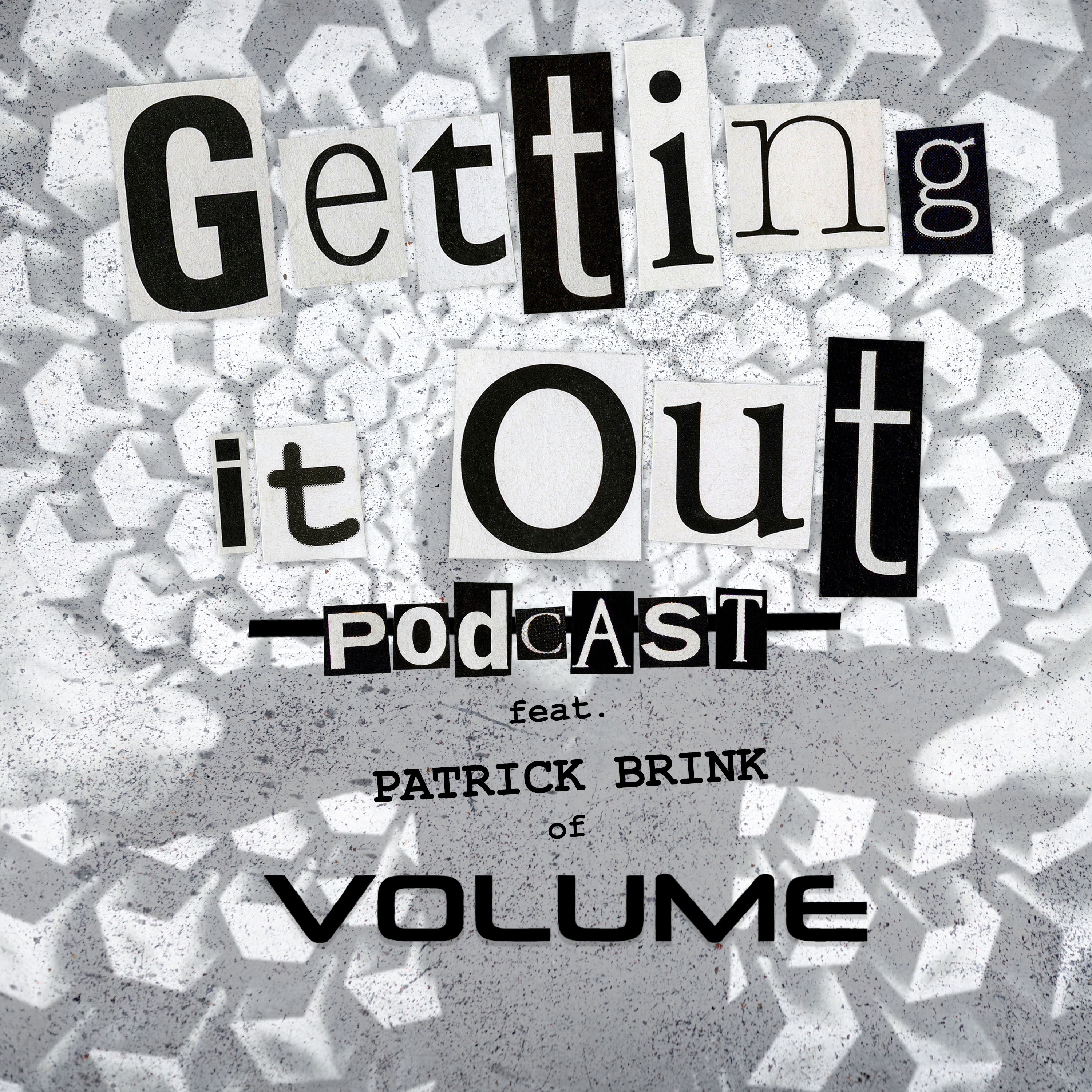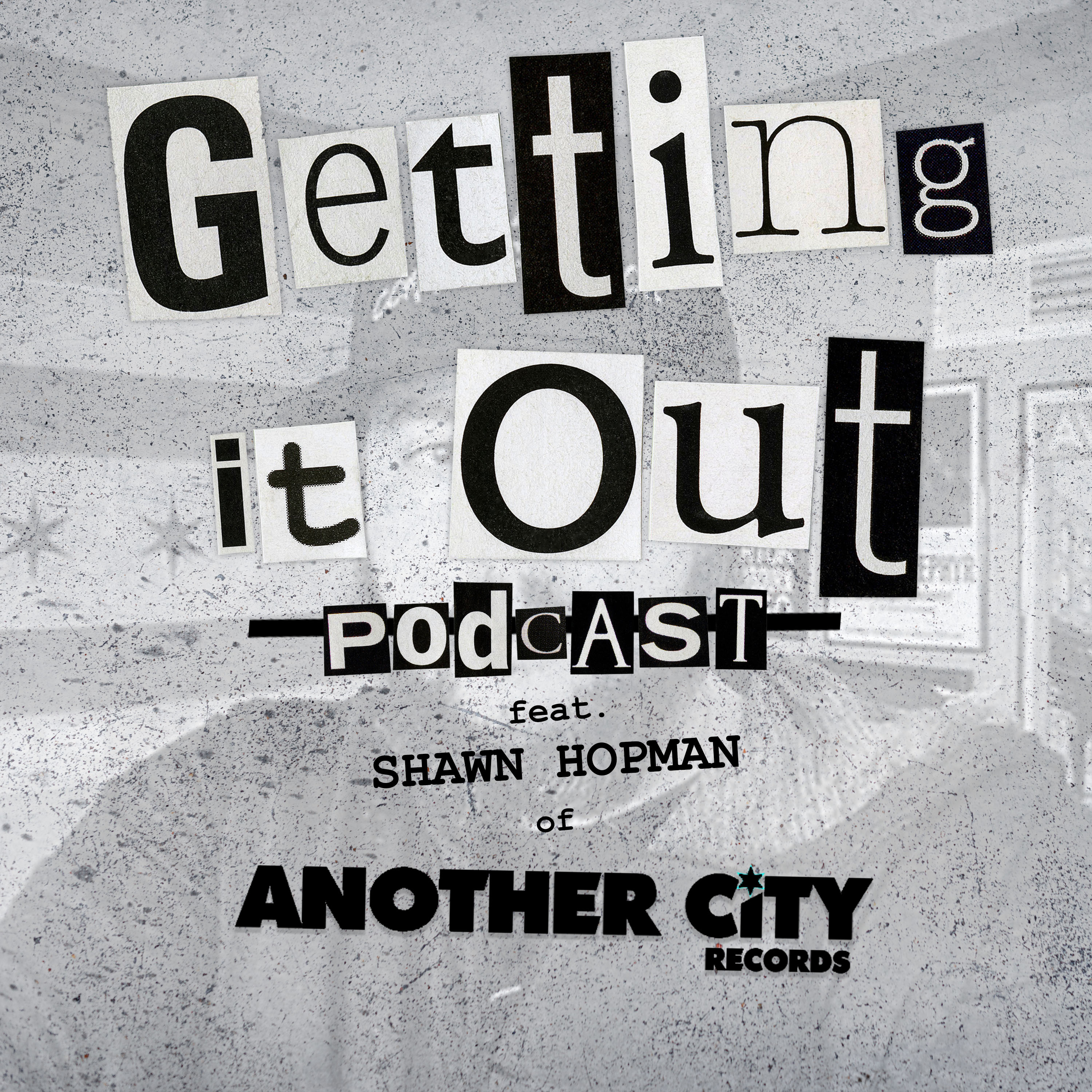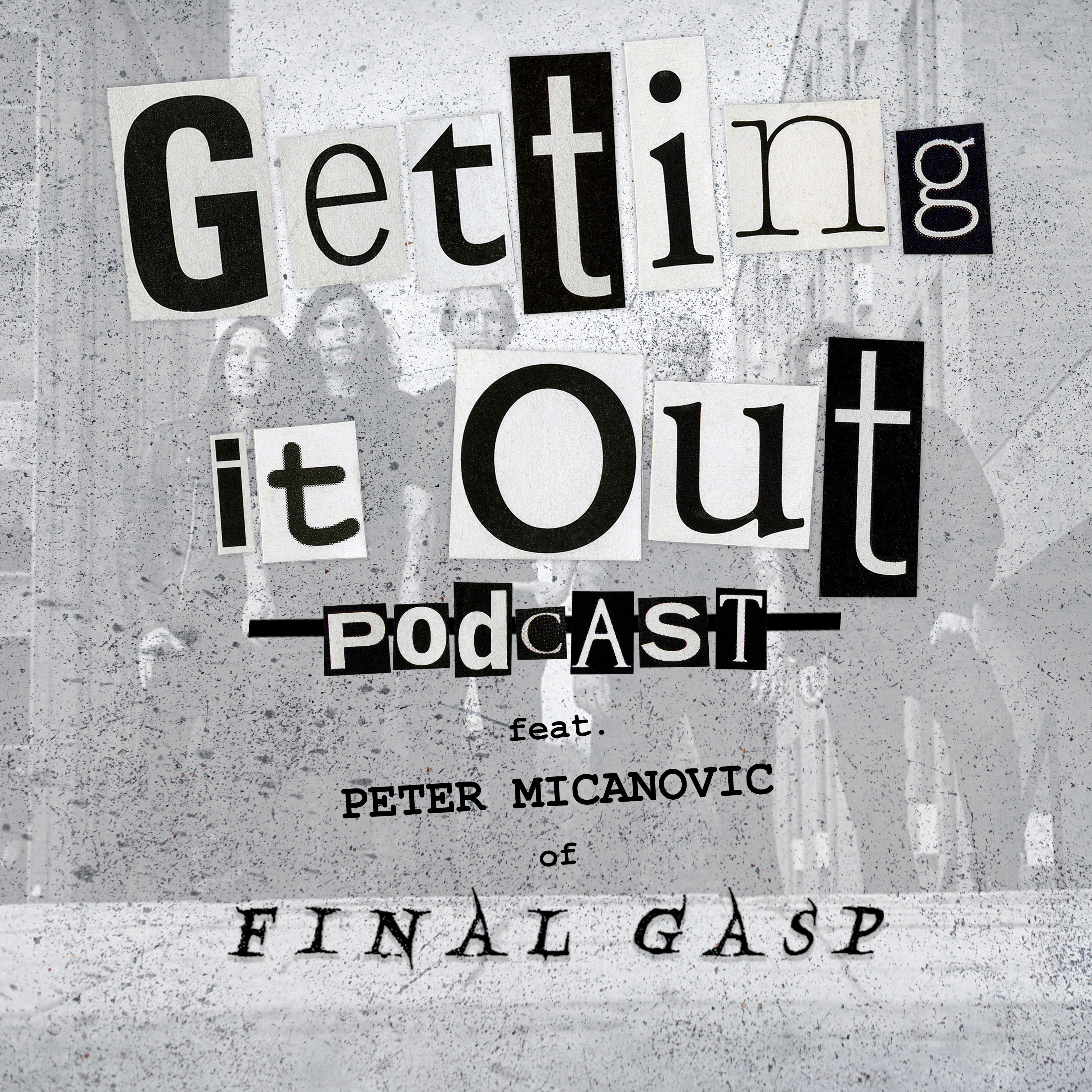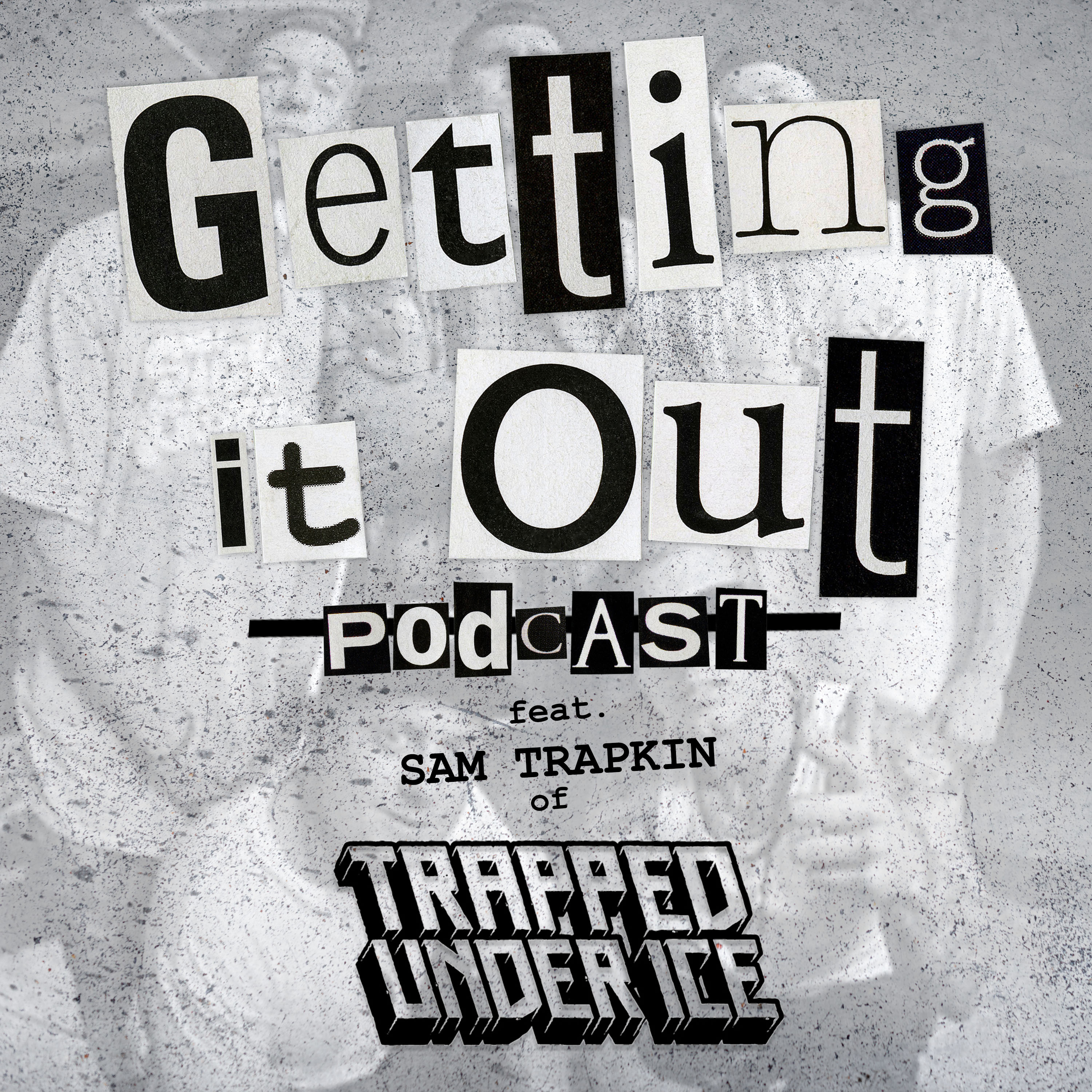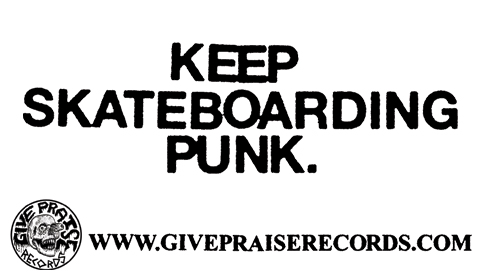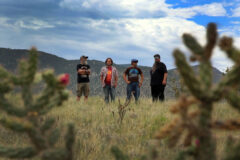Interview: Kurt Brecht of D.R.I.

This month, Blackhouse Records will republish the collected works authored by D.R.I. vocalist Kurt Brecht. The ultra-rare titles Notes for the Nest, 30-Day Diarrhea Diet Plan, See The Loud Feeling, and Whore Stories were initially released between 1988 and 1993. Each book is limited to a pressing of 500 and available to pre-order HERE.

Getting It Out: I’ve been a fan of the band for quite a while, and it’s been really cool to see you guys still doing it, uh, I don’t know how many years it’s been now. How many years has it been now?
Kurt Brecht: Like, 43, something like that.
Getting It Out: 43 years! Of course, you guys came out of… was it the Houston area in Texas? What was being a punk, or into metal, or whatever you want to call it, in Texas in the early 80s, like?
Kurt Brecht: I grew up going to big rock concerts. Stadiums, that sort of thing. Until I found out about punk rock, hardcore, stuff like that… then I started going to smaller shows. I didn’t know they existed until then.
Getting It Out: Do you remember what it was that you found that pointed you there?
Kurt Brecht: My little brother, Eric, who was the original drummer of D.R.I.. He was still at the age where, during the summer, when my parents would go to California, that he would have to go with them.
I was finally old enough to stay home, so I was home, and then he went there, and he kind of found out about it when he was there, and then when he came home, he told me about it, and then we saw a flyer one time for TSOL and he’s like, that’s one of those bands I was telling you about, you know? And then we found a punk rock record store. There was one record store in town that had stuff like that. So we drove there and bought some records there and stuff, and…yeah, just started getting into it.
Getting It Out: That’s pretty cool. You never hear about the younger sibling being the one to find it first, so that’s interesting.
Well, you guys started DRI way back then. Of course, there was the Dirty Rotten EP, became the LP, blah blah blah, Dealing With It. And then… it just launched into this long career that you’ve still kept up to this day, which is just incredible. You just got off of a tour, right?
Kurt Brecht: Oh yeah, we’re about to go back out again soon.
Getting It Out: Unreal. Still you and Spike out there, right? Were there other local bands happening at the time, or did you just kind of start DRI to become the only one?
Kurt Brecht: Well, we started the band with Spike. Before then, we were just kind of banging around and, you know, making noise and stuff, looking for a guitar player, but…not really… playing songs and all that.
Getting It Out: Was there any, like, initial success or something that you saw that this was gonna work for you?
Kurt Brecht: Oh, yeah, I mean, we were just one of those local bands that would be opening up every show, and then they’d let us do our own shows now and then at the local punk show, clubs, but not very many people would go, you know, because we were playing all the time anyway. But it was just a way to get out there and practice playing live and everything.
Getting It Out: Gotcha. Well, a lot of people credit you as one of the bands that were a part of the big crossover moment. Was that something that was intentional back then?
Kurt Brecht: I don’t know if it was totally intentional. I know we did talk about not wanting to just play nothing but a bunch of really fast songs, even though that’s what we were famous for.
We didn’t want to get stuck with that. I guess we were smart enough to know that it would…it just wasn’t that fun for us, you know, we wanted to break it up, break it up with some slower stuff, so that’s what we started doing.
Like, with Crossover, there were slower songs, but obviously… our whole set is not composed of those songs from Crossover, but adding a few of those slower ones into the normally blistering fast set, you know, kind of breaks it up.
Getting It Out: Interestingly, you kinda stopped… well, not kinda, you stopped putting out new records or at least new LPs, way back in 95. What was the cause of that?
Kurt Brecht: They just weren’t selling very well the last few, but you know, we thought they would. We would try, you know, as a band, I mean, you come up with songs that you like, and you hope other people will like it. Sometimes they do. Sometimes they don’t, I guess.
But now it’s kind of… the money is kind of dried up, you know what I mean? Like… record companies and all that.
Getting It Out: Yeah. Well, you had spent some time on Metal Blade Records, who… I guess at the time they were a big record label, but now are… maybe they were even bigger back then.
Kurt Brecht: No, I don’t know, I think they’re bigger now, probably. I’m not sure, but they got… I think they seem to be doing pretty well now. Well, Slayer… Slayer was on their label; Slayer was their big band.
Getting It Out: Yeah, I don’t think they’re hurting, yeah.
Kurt Brecht: And now they don’t have Slayer, but they have other big bands, and I think they’re doing pretty well. I just got some… they just sent me some vinyl from Germany. What do they call it? Like, it was a limited edition splatter vinyl for Thrash Zone and Four of a Kind.
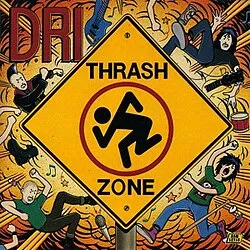
Getting It Out: Do they still own those albums?
Kurt Brecht: Yeah.
Getting It Out: At this point, do you actually have any of the DRI stuff for yourself?
Kurt Brecht: Yeah, a lot of it, it’s on… well, we put it on Beer City Skateboards and Records are the ones that put it out now. But yeah, we got quite a few things back. Some stuff from Metal Blade, they just gave back to us.
Getting It Out: Oh, that’s awesome. I’m glad to hear that. And it seems like a lot of old bands are getting their shit back, and I know some labels are helping with that, and others are just doing it on their own, I like hearing that. That’s great.
Well, in the midst of doing the band, you started writing books. Which, honestly, I didn’t know about this until I saw Scott (Rozell) and Blackhouse start talking about the re-release of the books that you wrote.
So, I know from just doing my little bit of research, but not much, that you started doing these in the late 80s and into the 90s. Was this something you intentionally set out to do, or you just kind of realized you had a lot of shit written down?
Kurt Brecht: Well, the first one was because, I mean, we were literally starving, and I saw, you know, I was just trying to think of ways I could make money, or whatever. Even though I was touring and everything, and I saw other vocalists, you know, like Henry Rollins, putting out books and stuff, and I thought, I can put out a book, and I was talking to a friend of mine about it, and he said he had a big staple gun. His mom had one, or something, it was like, industrial stapler.
So then now, we got a bunch of paper, I found a guy, he let me make a bunch of copies for free, so I put out a hundred of Word War I, it was called. It was an old printer. You had to put a different cartridge in, or I think… I can’t remember the black, red, green, maybe blue.
Getting It Out: Was it, like, a desktop printer, or like a press?
Kurt Brecht: Uh, no, like a desktop type of printer.
But it was old, it wasn’t full color. You had to put in a separate cartridge for each color, and it would only do that one color. So you had to run the page through multiple times if you wanted multiple colors on one page.
But he let me do it free, this guy that I met. So, I got them all printed up for free, we stapled them up for free. And I sold them for, like, a dollar each, or whatever, but once I had those, I was never totally broke ever again. You know, I was making a little bit of money, I could always eat.
Just make a few extra dollars every day. That was… that was probably in, like, around 86 or 87, something like that.
Getting It Out: And that started with World War I?
Kurt Brecht: Yeah, so there’s only 100 made, so they’re pretty rare. There’s only a few people who I know that have all of my books. Besides me. Very few people in the world that have all of them, including that one.
Getting It Out: Hmm, that one is not included in this, uh…republishing.
Kurt Brecht: No, it’s just poems, like lyrics or whatever, with my drawings and photos that I… like, black and white photos that I took and stuff like that. It’s just some stuff I slapped together, stuff that I had back then, you know, living in the van or whatever, I didn’t have much, but there’s no stories or anything like that.
Getting It Out: Gotcha, gotcha. I saw that, mentioned that book in one of the title pages of Notes from the Nest and I was wondering, where the fuck is that one?
Kurt Brecht: Yeah, that’s the rare one.
I have a few pages. I have, like, an envelope with the leftover pages. So, say, like, you know, 21 pages, or whatever it is, I have them all still, so every now and then, I’ll have a friend talk me into it, you know? They really want one, or whatever, so I go out there and I pull one page out of each envelope, and just throw it all in an envelope, I don’t staple it together, and I’m like, here you go. 100 bucks.
Getting It Out: That’s cool, so Notes from the Nest, is that the first official?
Kurt Brecht: Yes right, that’s the first one, actually published by Dirty Rotten Publishing and all that stuff, and um… I reprinted that. I did 3 printings, 1,000 each. As they ran out each time.
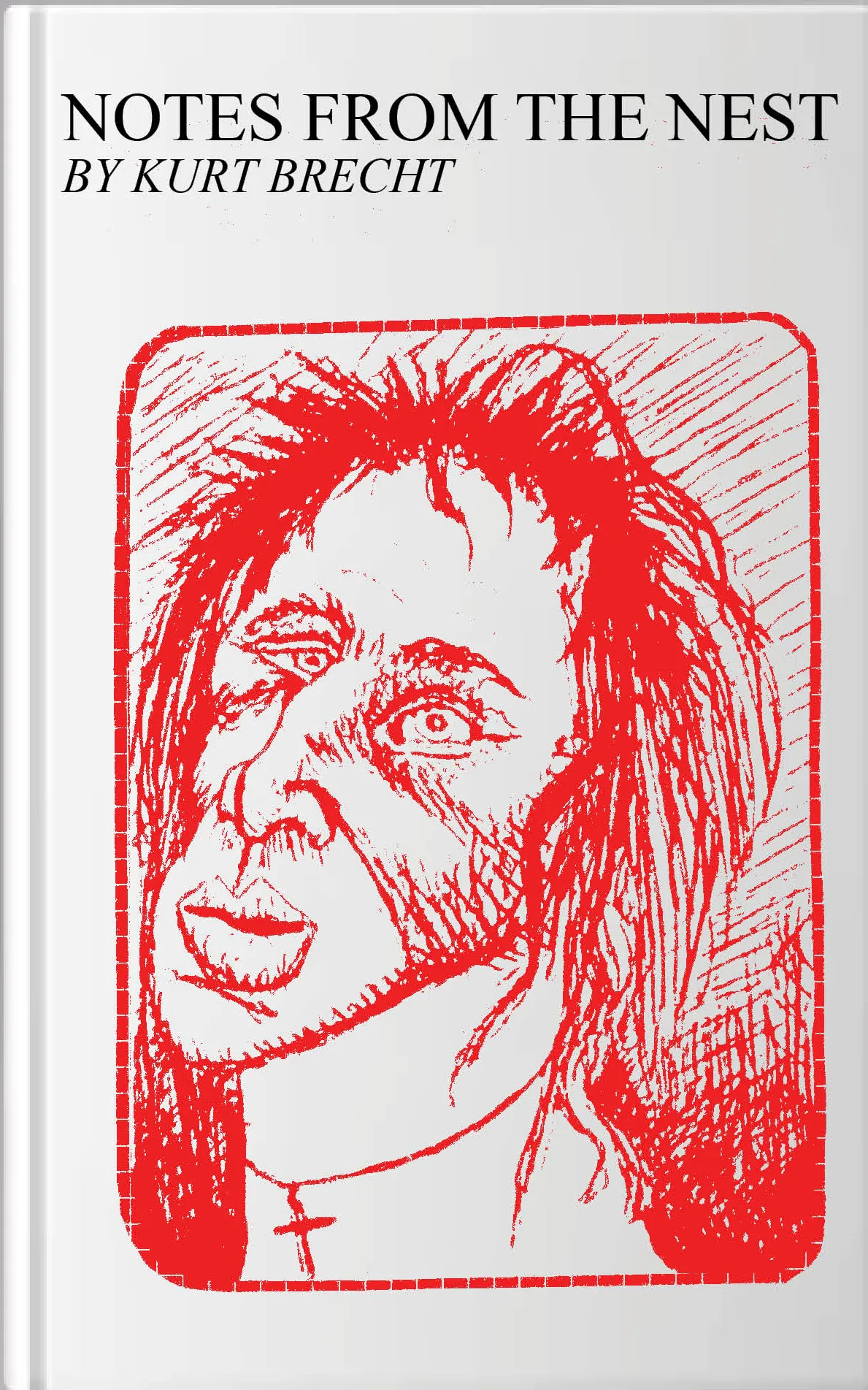
Getting It Out: And it looks like you did that the first time in 1988? How were you doing it?
Kurt Brecht: Yeah, there was a company called GRT Book Printing in Oakland, close to where I lived, so I went there. It was probably before digital printing or whatever, so to get a decent price, you had to make at least a thousand of them, so that was a lot of boxes.
Pretty soon, I was putting out books for my friends who were writers, and, you know, my whole house was full of boxes after a while. So, when I finally got rid of them all, then I just quit… I quit doing more of them. You know, I just kind of got out of it for a while. Long time, actually.
Getting It Out: What were those first runs like? Were you doing hardcover? Was it paperback? Perfect bound, saddle stitched?
Kurt Brecht: No, they’re just paperbacks. The first one was saddle stitch, Notes From the Nest, and then later, I was able to add some pages or something and make it perfect bound.
Now they’re all perfect bound, and now they’re all glossy. The only… Whore Stories was the only glossy one before. That was the final book that I’d put out.
Getting It Out: That’s awesome. I know that some of them have more pictures than others, but all the drawings are yours as well?
Kurt Brecht: Yeah, I just did the cover. Notes from the Nest has a couple drawings, some done by my brother, Eric, the original drummer, some done by Mark Sperry. And the back of 30-Day Diarrhea Diet Plan, that drawing is also Mark Sperry.
Nobody knows what happened to him; he disappeared. Nobody can find him, so… I couldn’t ask his permission, but, you know, whatever. He gave it to me. He gave me the original.
Getting It Out: Well… I think that works. So I didn’t know Dirty Rotten Press was a thing outside of your own books. Who else were you doing books for?
Kurt Brecht: For him, Mark Sperry was one of them. And then I was also distributing a couple different people’s books, besides printing them.
Getting It Out: Well, how did you end up with this… reissue? What do we call it? What do we call them? Reissue? Republishing? Rerelease?
Kurt Brecht: Reprinting. Republishing or something, I don’t know. Haven’t really thought about it, but yeah. I had gotten another guy, and I was gonna have him do it, and then he ghosted me after I sent him the books, you know, one of each book, so he could use those to reproduce them, and then he just ghosted me, so I was out… out 4 books, which is tough. Because I don’t have very many of them, they’re expensive. I just bought some today, some old ones from a guy on Facebook. So I just buy them up when I can, you know?
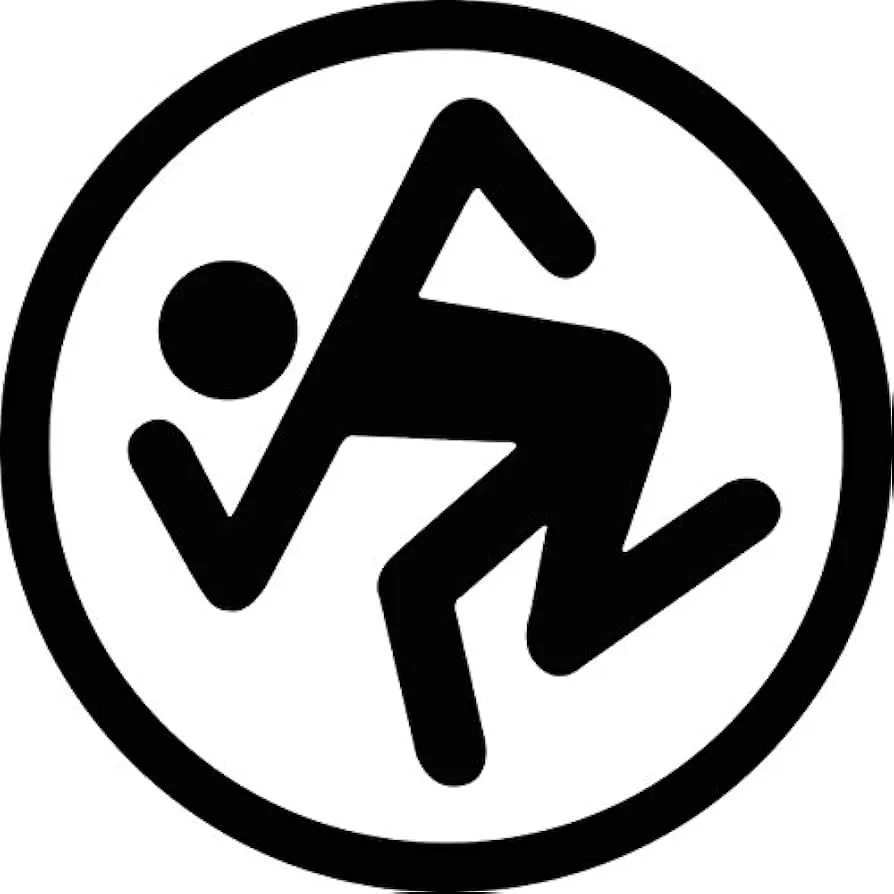
Getting It Out: Are people at least cool enough about selling you back your books at a decent price?
Kurt Brecht: Yeah, this guy was pretty cool about it, you know? He definitely made a… he made a profit, but, you know…he could have got me for more.
Getting It Out: That’d be pretty shitty, but, you know, whatever. I guess everybody’s trying to make a buck, right?
Kurt Brecht: Well, when I said I might buy them back, he goes, “they’re rightfully yours anyway,” or something like that, so it was strange. I don’t consider them rightfully mine.
Getting It Out: Yeah, unless he stole them from you.
Kurt Brecht: I can remember, like, yesterday, the first Notes From the Nest I sold, you know, they’re like, when you have to spend so much time, you know, writing, going through it all, and editing, and then get finally printed, and you get it in your hands, you know, and then it’s like, alright, I can sell one now, and I sold it to the guy at a D.R.I. show.
$3 back then and he’s like, “alright, thanks”, and he folded it in half and shoved it in his back pocket and walked away, and I was just like, no, and I made the realization then, you know, they’re like my children or whatever, but I just have to let them go, because there’s nothing I can do about it.
Getting It Out: You know, that’s really interesting that you say that, because I help people make books, publish books all the time, that’s what my job is. It’s so important to the people who are doing them. And then you have people like myself that are like, this is just another book. I get so many people that it’s their life’s work.
Kurt Brecht: And then once it’s out, if there’s mistakes in there and stuff, you know what I mean? It’s like, you’re just stuck with it forever.
Getting It Out: Yep. You gotta review those PDF proofs like you got now.
Kurt Brecht: Yeah, well, for instance, See the Loud Feeling, that’s my complete collection of previously published poems and lyrics.
When the original one came out, I had forgotten one song, “Beneath the Wheel,” so then I had to, print up a page and just fold it up and stick it in there for once I realized it.
Getting It Out: That’s a pretty popular D.R.I. song, too.
Kurt Brecht: I know, I can’t believe I screwed up. But the new one, now the new one has (it). It’s a pretty thick book for me and a very important book for me to get all of my previously published stuff into one deal, and who knows, I mean, later, going through it, I might find that I skipped one or something, but I’m pretty sure it’s not one of the real important ones.
But, you know, misspellings and things like that, or mistakes, you know, missing periods and whatever, they’ll… they really bug you.
Getting It Out: They do, but most people don’t notice them
Kurt Brecht: Correct, and I understand that’s the only way I can sleep at night.

Getting It Out: It’s like, when a band’s on stage, or even recording a record, and they missed a note, nobody, especially in hardcore and punk and metal, half the people have no idea.
Kurt Brecht: Oh, yeah, my band’s toughest on ourselves. Yeah, terrible nights, and then everybody’s like, “Oh, best show ever.”
And even the guys in the band, one might think it was great, and the other one, where he was, you know, the drummer or whatever, it might have sounded terrible.
Getting It Out: Yeah, I bet. I was in a band very briefly. Actually, we played with you guys one time, and I hated it. I thought every show sucked. So the fact that you’re doing it for, you know, nearly fucking 45 years is insane.
Kurt Brecht: With no sound man or anything, you know, just going, playing on the other band’s equipment, and just wanging it every night.
Getting It Out: That’s cool, man. I think it’s… I think it’s great. These books they’re being republished with the help of Blackhouse. How did this collaboration happen?
Kurt Brecht: Well, I had the one guy, and he was gonna do it, and then he ghosted me, and then I think Scott contacted me. I can’t even remember how maybe on Facebook or something, I don’t know. And he said he was down, so I… having learned my lesson, I told him, I’m not sending you the books, you know?
So, he said, “Alright,” and so I just scanned the pages in, and sent him the scanned pages, and we found a bunch more mistakes, too, that I had never noticed before.
I have edited versions, you know, where I pencil, circle stuff and all that. If that moment ever came that I could re-put them out, I’d already have everything ready, and we even found a bunch of other stuff that I had never noticed.
Getting It Out: Dude, I bet, and not to be a dumbass, but I bet you could find more shit in even the edited versions.
Kurt Brecht: In the new one, yeah, there already is. I was on tour, and he sent me the PDFs and everything already, but, you know, when he sent me the books, there was a few mistakes, and at first, I was just like, you know, no way, forget it. And then after looking, reading through them, and not even reading every word, just scanning through and stuff like that, and I was like, it’s good enough. It’s so easy to do another edition now.
Getting It Out: How easy it is to make a book once it’s set up and approved is pretty amazing now. People don’t even realize that half the shit that they… books they buy on Amazon, those are printed, like, as they’re bought.
Kurt Brecht: Yeah. Crazy. So, for any other book people out there, or printing people, another thing about when you’re editing the book and all that kind of stuff is, I guess, what you’d call a butterfly effect or something, so each change that you make can change the whole layout of the book.
Because it’s electronic, you know, so all of a sudden, now you’ve got a page with just one word on it. That looks really bad, so there’s also the design of the book. You want to make it look good on the inside and everything, besides the outside part. You don’t want just one word there at the end, on one page, or something like that.
You gotta constantly watch that stuff. “Oh, can you just take this out?” And it’s like, oh shit, now everything changed from there on to the end of the book or at least till the end of the chapter or something.
Getting It Out: It makes sense when you know it, but if you wouldn’t, why would you, you know?
Kurt Brecht: Speaking of perfect bound, the reason I went to that was because I quickly realized that bookstores wouldn’t take my saddle stitch book. Because they couldn’t stick it into the shelf, you know. Anyway, I realized that was a problem. A lot of places would shrug me off, or whatever, and wave me away, because that was an easy way for them to get out of having to take my books. And libraries… they would never take my books. I would just go in there and slip them in when they weren’t watching so hopefully somebody would get it, somebody will read it.
Getting It Out: That’s funny. You did five books in total, but these four are getting republished. It’s Notes for the Nest, 30-Day Diarrhea Diet Plan, See The Loud Feeling, and Whore Stories. Is this all that you’ve done so far?
Kurt Brecht: Right, right. We’ll see how well they do, you know? Nowadays, it’s so different. I mean, when I was doing them originally, there was no internet and websites and Facebook to sell them on and stuff like that, so it might be a lot easier to market your own stuff now.
I had a few distributors, like Last Gasp and stuff, but they had a little catalog they would mail out and everything, but now things have changed. Might be better, I don’t know. Maybe people won’t be reading as much anymore, but, I mean, a lot of guys in bands putting out more… memoir-type stuff, or whatever, even from their early lives and all that, you know, which people are interested in, that’s cool.
I don’t know if I’d be interested in doing that.
Getting It Out: Yeah, well, you probably have all the material you need.
Kurt Brecht: It’s true. Well, yeah, so anyway, if the books do well and everything, maybe Scott, you know, would make an offer or something, you know, want to put out a new book, or be like, yeah, this one did really well, let’s put out one like that.
I’m sure it won’t be See the Loud Feeling, because lyric poem books probably do the worst.
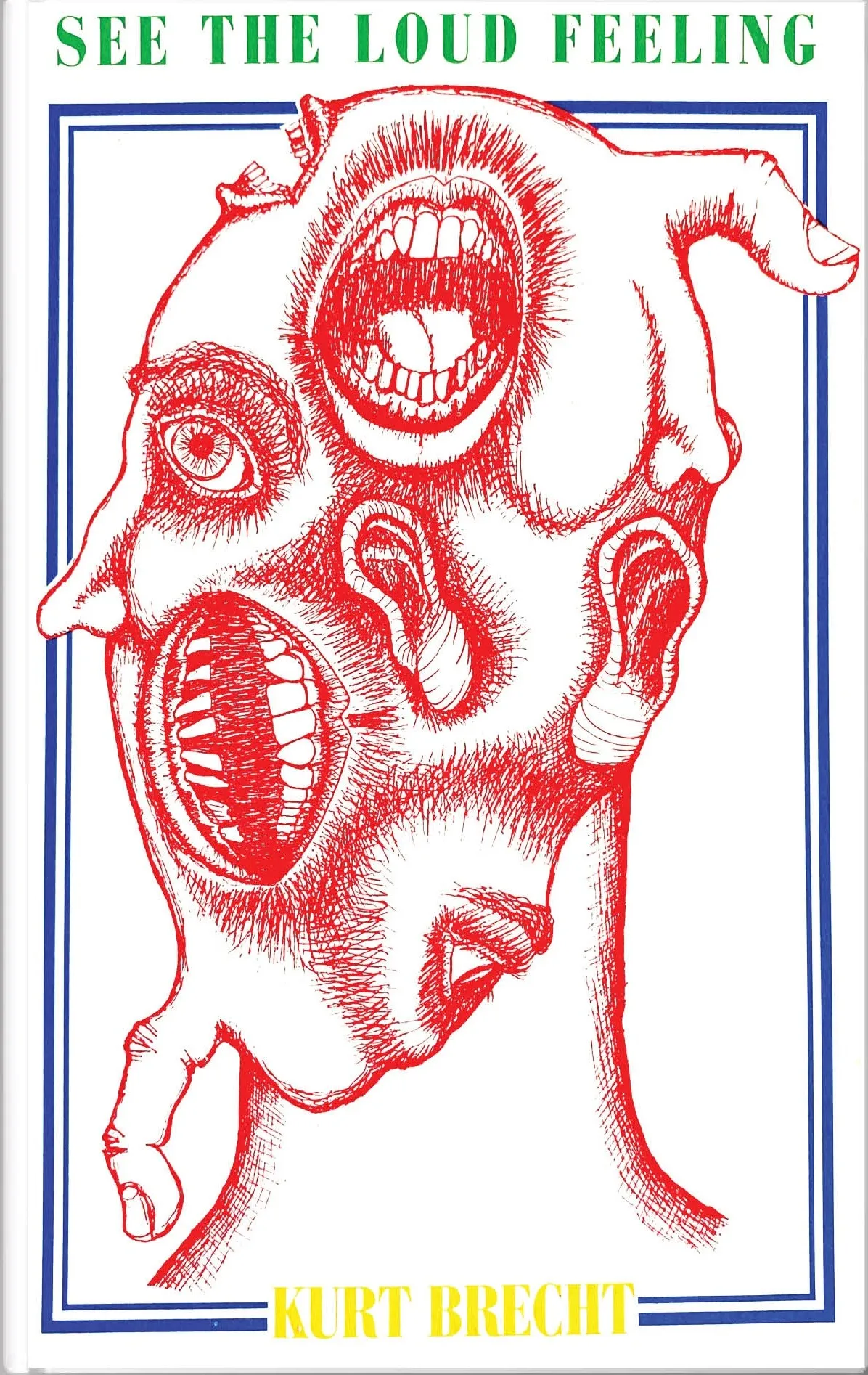
Getting It Out: Which one do you like the best? Do you have a preference?
Kurt Brecht: Well, the See the Loud Feeling didn’t sell very well to start with, and I knew it wouldn’t. I knew it wouldn’t. I just had a need to put all of my poems into one book. Since it doesn’t really say who wrote what on the D.R.I. albums and everything, you know?
I wrote some, and other guys wrote some, so I just wanted to put all mine into one. Now I’ve done it.
Getting It Out: Well, see, that’s actually what makes that one interesting to me, is that it includes all your songs. Because if it was just a book of poems, to me, that… maybe not so interesting, but the fact that it’s got the D.R.I. material in it. That’s what I’m into, I guess, so that makes sense, right?
Kurt Brecht: Yeah, but, you know, it’s also got my other band, Pasadena Napalm Division, it’s got the lyrics I wrote for that band, and the song that I did with Dave Grohl.
So it’s got that one in there, too. My other books also have some little poems in there, some which became songs later on and stuff, but others that didn’t. So now they’re all in there, too, so…
Getting It Out: Do you have any thoughts or memories that are really associated with each of these, other than, of course, the stories inside them?
Kurt Brecht: Well, there was a guy, I bought some hash from him one time in San Francisco, and I don’t remember how, somebody told me about him, or whatever, some guy had some hash, and so I went to his house and stuff like that.
But he knew who I was, and he said that he had read the 30-Day Diarrhea Diet Plan. Him and his friend went and followed my footsteps. Without ever talking to me or anything like that.
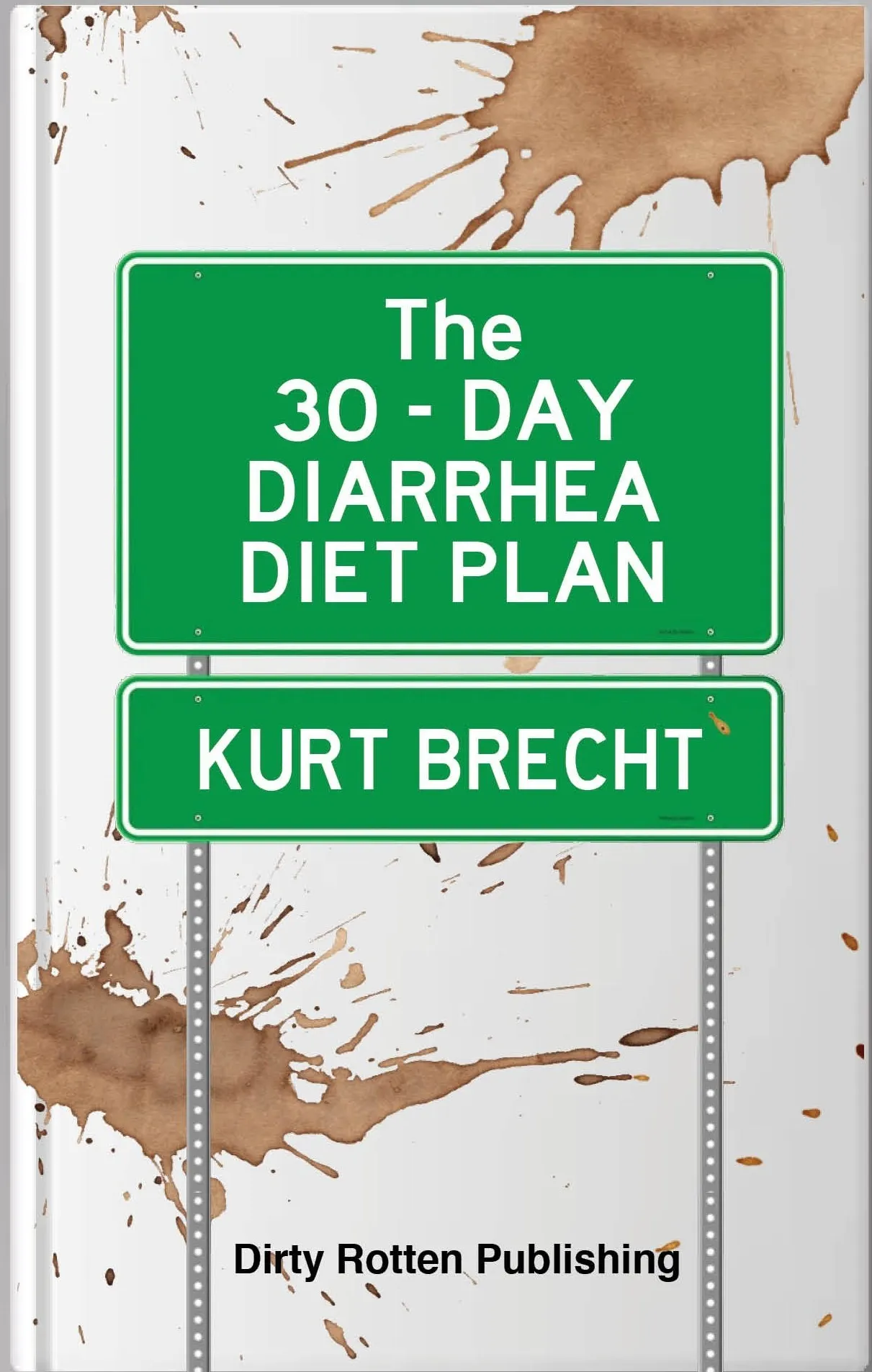
And did, like, the whole thing all around, like, to the same places where I went and everything, and so that was very bizarre. And I imagine, you know, if that’s just that one guy that I met that, like that. How many other people may have done that? Never told me. Or even done part of it.
Getting It Out: Oh, wow, that’s bizarre. But kind of cool, too.
Kurt Brecht: And then the Whore Stories one was, um…I had some woman that said she would edit it for me.
It was at the time of fax machines, when they became very popular. And so I would fax her, I guess I faxed her my typed-out stuff. And then she would fax back showing what she had done on the computer or whatever, and then I would fax back any mistakes and stuff like that. We were going back and forth like that.
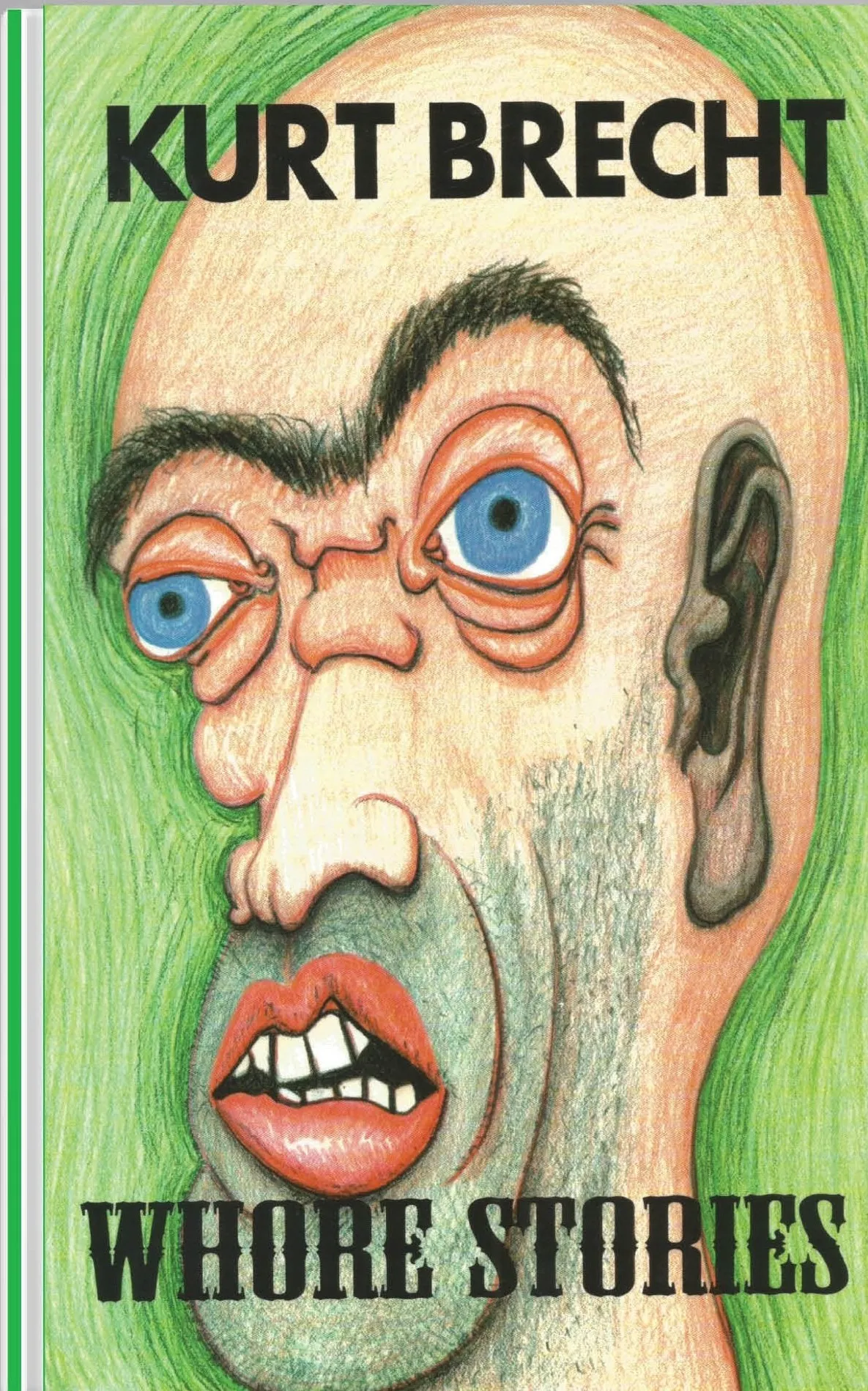
And, um… I was trying to get back with my ex-girlfriend, and she didn’t know anything about the Whore Stories book.
And so then she came over to my house, and we were hanging out, and I had to leave for some reason to go somewhere to work or whatever, and I left her at my house. When I came back, the whole Whore Stories book had come through on the fax machine.
She read it all, and she was just livid. She’s like, “What the fuck is this?” And everything, just, like, freaking out on me and everything, so that’s…my funny story about that.
Getting It Out: Yeah, uh, that… that could ruin a relationship, that book.



